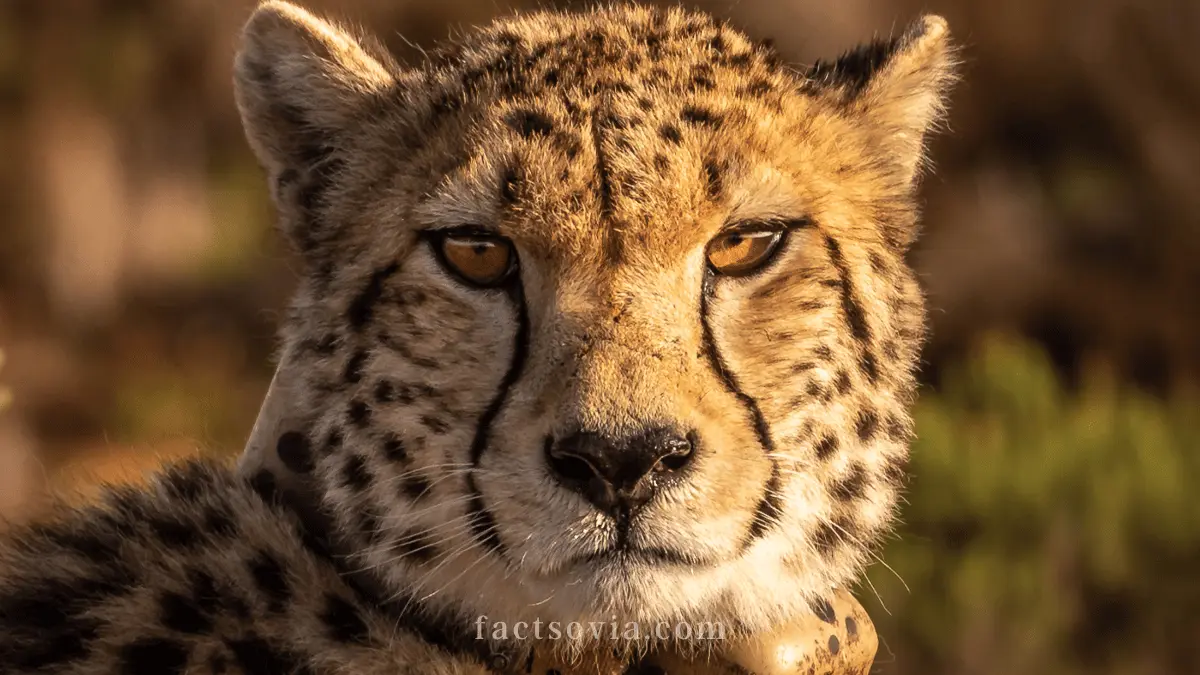We use affiliate links to run our site. When you buy through links on our site, we may earn an affiliate commission, without any added cost to you. Learn more
If you are an animal lover, chances are you are fascinated by cheetahs. With their sleek build, spotted coat, and lightning-fast speed, these big cats are truly impressive creatures. But like any predator, they can be dangerous – or can they?
The question of whether cheetahs are dangerous is one that has puzzled people for years. In this blog post, we will explore the truth about cheetahs and their reputation as dangerous predators.
Physical Features of A Cheetah:
Let’s start by looking at the physical attributes of cheetahs. As we mentioned before, cheetahs are known for their incredible speed. They can run up to 75 miles per hour, which makes them the fastest land animal in the world.
But their speed is not the only thing that sets them apart from other big cats. Cheetahs have a more slender build than lions or tigers, and their claws are not retractable like other big cats. This means that their claws are always exposed, which may make them seem more dangerous.
A Threat to Humans?
While cheetahs are certainly capable of killing their prey, they are not typically a threat to humans. In fact, there are no recorded cases of a wild cheetah attacking a human.
Cheetahs are shy by nature and will usually avoid confrontation if they can. They will only attack if they are desperate for food or feel threatened.
This is why cheetahs are not considered to be one of the “big five” game animals in Africa – the animals that are the most dangerous to hunt.
Are They Dangerous to Others:
Another reason why cheetahs are not considered to be dangerous is that they are not aggressive towards each other. Unlike lions, which will fight over territory and resources, cheetahs are relatively peaceful animals.
They are social cats and often live in groups called coalitions. Within these coalitions, male cheetahs will often form strong bonds and work together to defend their territory and cubs.
This kind of cooperation is rare among big cats, and it shows that cheetahs are not the solitary, aggressive predators that some people believe them to be.
A Threatened Species:
It’s also worth noting that cheetahs are a threatened species. There are only about 7,000 cheetahs left in the wild, and their population is declining due to habitat loss, poaching, and conflict with humans.
This means that cheetahs are in more danger from humans than humans are from cheetahs. In fact, many conservation organizations are working to protect cheetahs and their habitat, so that future generations can continue to enjoy these magnificent animals.
How to Stay Safe Around Cheetahs
While not considered one of the most dangerous big cats, cheetahs can still be unpredictable – especially if they feel cornered or are protecting cubs. Here are some tips for staying safe around them:
- Give them plenty of space and don’t approach on foot. Keep cars closed.
- Avoid direct eye contact, sudden movements, or running away.
- Never turn your back on a cheetah. Back away slowly instead.
- Do not crouch down or bend over – this can trigger a cheetah’s prey drive.
- Keep children close and dogs on a leash.
- Don’t approach a mother with cubs. She may see you as a threat.
In general, admired from a safe distance, cheetahs are graceful creatures that mean no harm to man. Their stunning speed and agility make them fascinating to watch and conservation efforts are critical for future generations.
Final Thought:
In conclusion, are cheetahs dangerous? The answer is no – not to humans, at least. While cheetahs are certainly powerful predators, they are not aggressive toward humans and will usually avoid confrontation if possible.
Cheetahs are more endangered than they are dangerous, and it is up to all of us to protect them and their habitat. This swift predator is more friend than a foe – and we have a responsibility to help protect them.
Amazon and the Amazon logo are trademarks of Amazon.com, Inc, or its affiliates.
